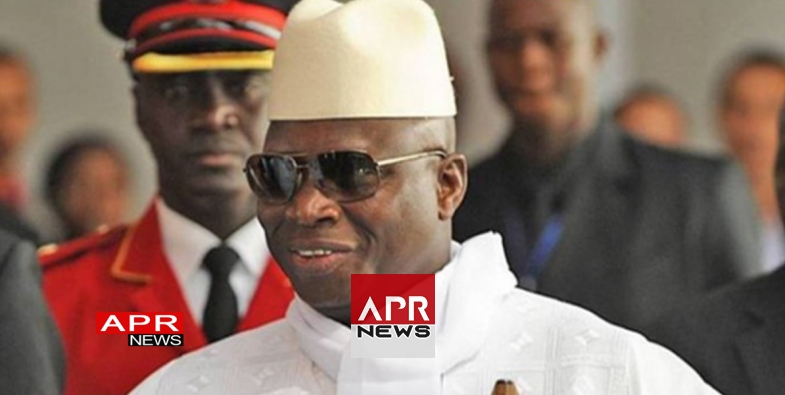You are here
Back to topGhanaian shoe seller vows to bring Yahya Jammeh to justice

Ghanaian shoe seller vows to bring Yahya Jammeh to justice
BBC- A Ghanaian man is leading a campaign to bring The Gambia's former leader Yahya Jammeh to justice over the murder of 55 migrants who were mistaken for coup plotters, writes the BBC's Alex Duval Smith.
Martin Kyere leapt from the pick-up truck into the darkness. Bullets whistled around him as he ran for his life through the thick
Gambian forest. He fell. He picked himself up. He dodged the soldiers' searchlight.
He promised himself not to rest until Mr Jammeh was brought to justice.
Thirteen years later and now living in his native Ghana, Mr Kyere is the key witness in an international effort to bring The
Gambia's former president to trial for what was probably the single largest mass killing during the 22-year reign of terror.
Meanwhile, Mr Jammeh has lived in Equatorial Guinea since January 2017. He went into exile there under a regionally-brokered deal after losing the December 2016 presidential election to Adama Barrow.
Travelling to Europe
Mr Kyere is the only known survivor out of 56 West Africans - most of them Ghanaian and Nigerian - who were murdered in The Gambia on or around 22 July 2005.
''It is my mission, on behalf of my friends, we want justice,'' Mr Kyere, now aged 37, told the BBC in his home town in central Ghana.
In 2005, Mr Kyere, by selling shoes in Ghana and Ivory Coast, had saved up money to travel to Senegal and onwards to Europe.
He boarded a pirogue in Senegal's capital Dakar. It ran out of fuel and came ashore in The Gambia. The travellers were arrested, detained for a week in The Gambia's capital Banjul, and beaten.
''When we asked the police officers why we were there, they just said the orders came from above. For a long time we thought we would just be deported.''
But the migrants were handed over to ''the junglers'' - paramilitaries whose torture and killings had helped keep Mr Jammeh in power since he grabbed it on 22 July 1994.
Some people believe that in the run-up to the 22 July ''revolution'' commemorations, the migrants were thought by the paranoid regime to be mercenaries, acting on behalf of coup plotters.







